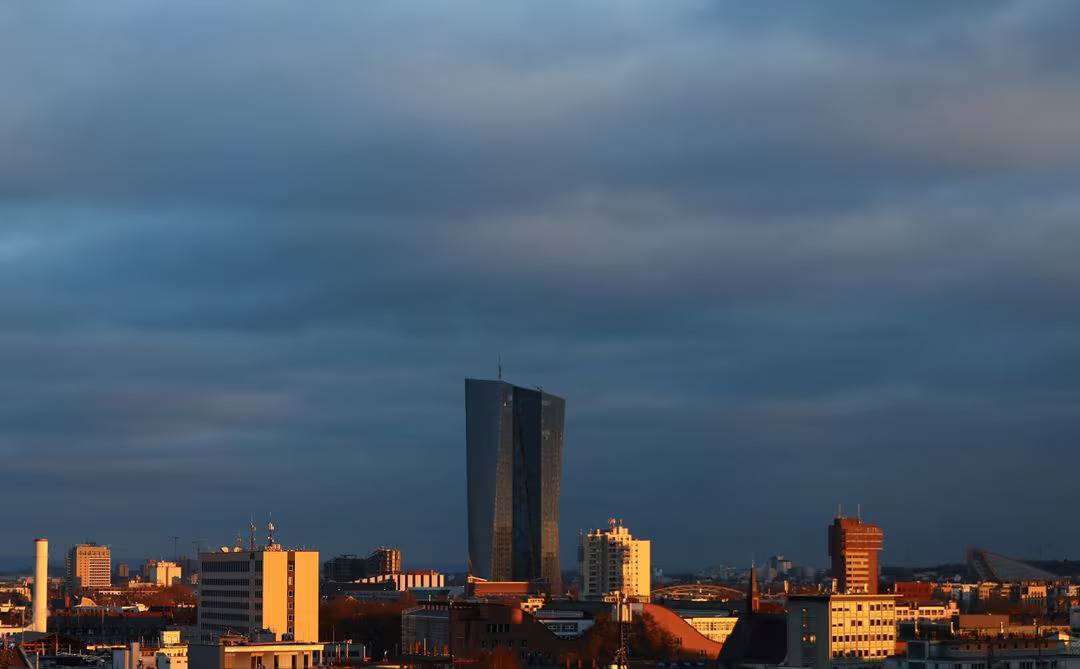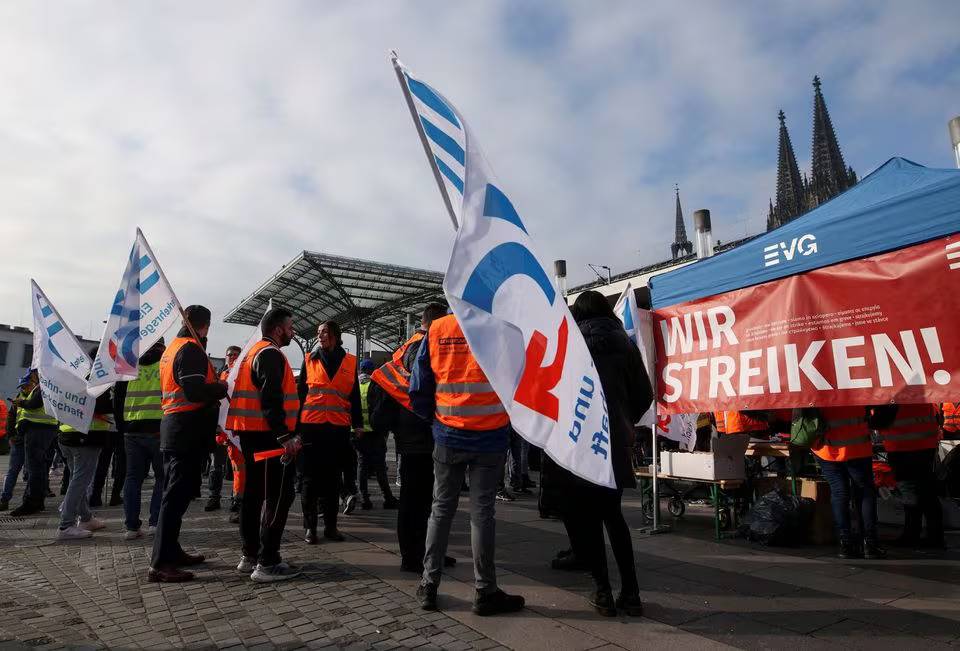ECB faces bumpy road to low inflation as wages rise

FRANKFURT—Workers in Europe are hoping this year’s pay round will help restore incomes eroded by higher prices, but the expected boost to their purchasing power could hamper the European Central Bank’s (ECB’s) efforts to bring inflation back to target.
The ECB has singled out wages as the single biggest risk to its 1-1/2 year crusade against inflation. It expects salary growth across the euro zone of 4.6 percent this year, far more than the 3-percent pace it considers consistent with inflation at its 2 percent target.
Higher wage settlements would be a risk to interest-rate cuts that financial markets are betting will start in April.
“We see a path to 3-percent (wage growth) but it will be a bumpy road,” Reamonn Lydon, an economist at the Central Bank of Ireland and one of the minds behind the popular Indeed Wage Tracker, said in an interview.Pay hikes increase costs for firms and boost household income, both factors that might push up prices and require the ECB to keep rates high.
Unions see a combination of gradually cooling inflation, low unemployment and fat corporate profit margins as their best and possibly last shot this economic cycle at restoring workers’ living standards.
And after seeing their real wages drop by roughly 5 percent in 2022-23—and decades in which labor has lost its leverage—wage-earners are ready to fight. US giants Tesla and Amazon are among companies already grappling with strikes in Europe.
Unlike in the United States, there is no real-time wage data for the 20-country euro zone.

But the Indeed Wage Tracker, which measures salaries advertised on that website, is closely watched by the ECB as an indicator of future trends. It ticked higher in December—to 3.8 percent from 3.7 percent—although that was well below a peak of 5.2 percent recorded in October 2022, when inflation was at its peak.Deals
Lydon and Indeed’s Pawel Adrjan said December’s increase was probably driven by new wage deals, an effect they saw continuing in early 2024 as more agreements are struck and minimum wage increases kick in.Among recent settlements, wages rose by 4.5 percent for employees at Spanish stores of and Ikea, 5 percent at French energy major TotalEnergies and 6.6 percent for Dutch rail workers. French Uber drivers’ minimum hourly rate rose 17.6 percent.Minimum wages were meanwhile lifted by 3.4 percent in Germany, 3.8 percent in the Netherlands and 5 percent in Spain.“Everything points to a return to real wage growth,” said Martin Hoepner, a professor at the Max Planck Institute for the study of society in Cologne, Germany.Emboldened by worker shortages that have only started easing, labor unions hope to reverse a trend of falling membership that accelerated with globalization in the 1990s.
Employees at French state-owned power group EDF are demanding a 6-percent wage increase or they will go on strike while some German rail workers turned down an 11-percent rise, spread over time, because they wanted a shorter working week.Some Amazon workers in Spain staged walkouts during the crucial holiday season and Tesla has faced blockades in Nordic countries aimed at making it sign a collective bargaining agreement in Sweden.
“At the moment, the economic conditions are obviously conducive to strengthening the unions’ bargaining position,” Torsten Mueller, a researcher at the trade union institute, said.
But Lucio Baccaro, also a professor at the Max Planck Institute, said such “wage militancy” could backfire if it caused the ECB to keep interest rates higher to curb demand.
“If a wage-price spiral is triggered, or if the central bank fears that it is, it will intervene to cool off the economy,” he said.Baccaro advocated smaller but tax-free, one-off increases like those deployed by Germany, which are set to expire at the end of this year, adding they could be financed by taxes on excess corporate profits.
So far, there are few signs of a wage-price spiral, as ECB policymaker Mario Centeno pointed out.
And most economists expect companies to absorb the higher wage costs this time—not least because of the overall stagnant outlook for the European economy. —REUTERS
Reuters, the news and media division of Thomson Reuters, is the world’s largest multimedia news provider, reaching billions of people worldwide every day. Reuters provides business, financial, national and international news to professionals via desktop terminals, the world's media organizations, industry events and directly to consumers.

















